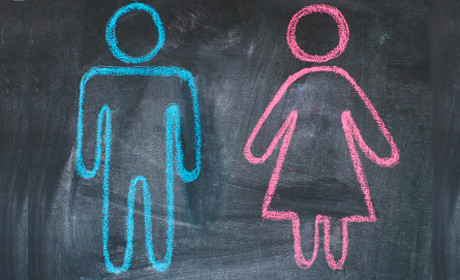
There are regularly more women than men studying journalism on a full-time undergraduate basis in the UK, according to data released today by the Universities and Colleges Admissions Service (UCAS).
The figures from 2007 to 2014 show the number of women on courses outnumber men in every year except 2008, when the numbers are equal.
The number of female applicants for journalism degrees is consistently higher than that of men, mirroring the gender split in total applications, but men are more likely to be accepted on to a course.
Eleanor Mills, chair of campaign group Women in Journalism (WiJ), told Journalism.co.uk she was "delighted" so many women are training to be journalists, but added that many organisations are still run by men.
"The problem, and I think it's true of other professions like law and medicine, is you have huge numbers of very keen, bright women but at the top they are entirely dominated by men," she said.
A 2012 study by WiJ looked at the gender of front page bylines at UK newspapers across a four-week period. Of the nine newspapers assessed only the Daily Express had an even balance, while the rest printed more stories written by men.
"It's a complicated picture, it's not just that there are women hating people running newspapers,' said Mills, who recently wrote about gender equality in journalism for the British Journalism Review.
There are many women in senior editorial positions at national newspapers, she said, but they have yet to "crack that final fortress" of the top positions. The last women to lead a UK newspaper was Rosie Boycott, who left her role as editor of The Express in 2001 when Richard Desmond bought the outlet and replaced her with a man.
"We would like to see the [Department for Media, Culture and Sport] make all media companies say how many women they've got and where in the business they are," said Mills, as a measure of better understanding gender bias in the media.
"It is getting better though," she said, pointing to the increased efforts by news outlets to "get more people back from maternity leave and keep them".
"[Publishers] know that half their readers are women and they've got to have women in writing the stories," she said. "I'll be very interested to see if the Guardian appoints a female editor."
Free daily newsletter
If you like our news and feature articles, you can sign up to receive our free daily (Mon-Fri) email newsletter (mobile friendly).
Related articles
- Open letter calls for a change in response to online abuse of women journalists
- How can universities prepare young journalists for the industry?
- Tools for journalists: Missing Perspectives Directory, for connecting newsrooms with women
- How do we improve how women are treated inside and outside the newsroom?
- Growing the next generation of journalists, with Karen Fowler-Watt









